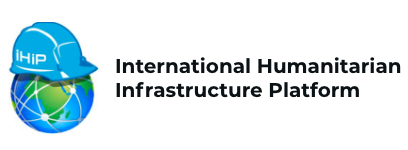Existing Results (2025)
Building a recognized reference for humanitarian infrastructure contracting
Since its creation in 2017, the International Humanitarian Infrastructure Platform (IHIP) has become a global reference in the professionalization of humanitarian construction and infrastructure delivery.
Through collaboration with NGOs, UN agencies, engineering federations, and donors, IHIP has developed practical tools, publications, and communities of practice that bridge the gap between humanitarian response and sustainable development.
Main publications and outputs
1-IHIP COPA – Conditions of Particular Application (2019 – 2025)
Adapted from the FIDIC Red, Green, and Short Forms of Contract, these model conditions establish a common contractual framework for humanitarian and development infrastructure projects.
They have been progressively updated to integrate:
- Risk allocation suited to volatile and post-emergency environments
- Dispute Avoidance Board (DAB) procedures tailored to NGO contexts
2-IHIP Contract Committee Series (2020 – 2025)
Three specialized working groups — WASH, Shelter, and Cross-Sectoral Infrastructure — were established to align sector practices.
Each committee produced reference notes and recommendations for contract administration, risk management, and competency development.
3-WASH Roadmap Initiative 5&8 (2021 – 2025)
As co lead, IHIP actively contributes to the WASH Roadmap’s global professionalisation agenda.
Within Initiative 5 – Professionalisation & Scale Expertise, IHIP supports the development of a shared WASH Competency Framework, linking contractual skills with technical and managerial capacities across NGOs, UN agencies, and the private sector.
As partner for Initiative 8 – Advocacy Mapping, IHIP coordinates outreach among signatories to amplify the community’s collective voice in policy and funding discussions, connecting professionalisation, advocacy, and contracting reform under a coherent vision.
These partnerships directly advance the humanitarian–development nexus by embedding professional standards and local capacity development at scale.
